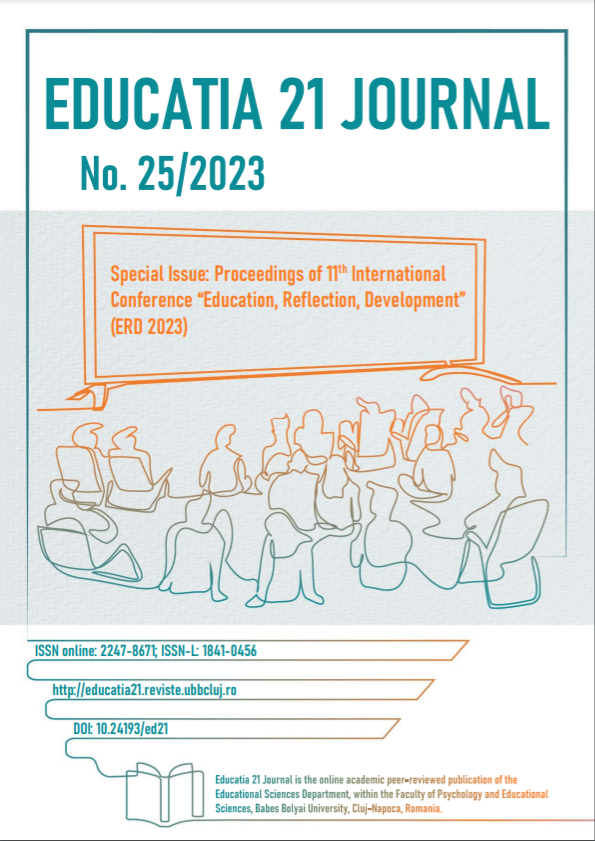The Technical-Scientific Circles Within the Children’S Palaces and Clubs, Educational Alternatives in Developing Skills in the Field of Science and Technology
The Technical-Scientific Circles Within the Children’S Palaces and Clubs, Educational Alternatives in Developing Skills in the Field of Science and Technology
Author(s): Jenő KerekesSubject(s): Pedagogy
Published by: Universitatea Babeş-Bolyai
Keywords: extracurricular activities; creativity; technical-scientific activities; teaching strategies; complementary education; interdisciplinary approach;
Summary/Abstract: Extracurricular activities serve as a valuable complement to the formal educational system in terms of their goals, content, and practical execution. These activities adopt a student-centric approach, tailoring their content, methodologies, and tools to individual students' abilities and interests. They offer flexibility, remain optional, and rely on voluntary participation, augmenting the formal educational process while nurturing the development of individual personalities, creativity, and essential competencies (Bocoș, 2017). Technical-scientific activities place a strong emphasis on the formative aspect of learning by identifying effective methods to structure and guide students' engagements (Albulescu, 2008). Through these activities, students amass knowledge, cultivate skills and abilities, and foster attitudes that bridge the gap between theoretical knowledge and its practical application. This questionnaire seeks to investigate the role and significance of technical-scientific activities in skill development. By analyzing the responses, we aim to establish a correlation between students' performance in national assessments and the practical knowledge acquired through extracurricular pursuits. These activities also aid in nurturing students' creativity, problem-solving capabilities, and offer insights into their perspectives on the interactive methodologies employed in organizing extracurricular events. This study was conducted among a cohort of high school students who completed an online questionnaire (N=445). The findings underscore the complementary nature of technical-scientific activities, which, in conjunction with formal education, contribute significantly to the enhancement of competencies in science and technology. The study affords an opportunity to scrutinize the strengths and weaknesses of specialized extracurricular programs, shedding light on students' demands within the realm of science and technology activities and the extent to which these supplementary initiatives can mitigate school dropout rates.
Journal: Educatia 21
- Issue Year: 2023
- Issue No: 25
- Page Range: 266-272
- Page Count: 6
- Language: English

